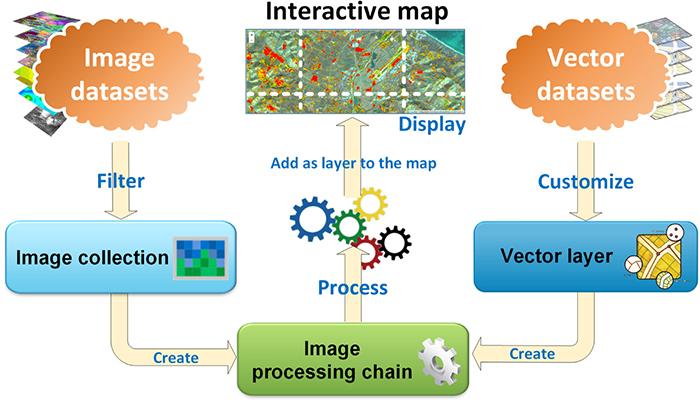
Geospatial data are playing an increasing role to answer major societal questions such as those related to the environment, climate change, crisis management, and sustainable development goals. At the same time, geospatial data are becoming ubiquitous given the multiplication of digital data sources ranging from individual citizens to private and public organizations.
With expected data volumes exceeding 10 TB per day, increased data velocity and data variety resulting from optical and radar sensors, geospatial applications are nowadays facing the challenge of extracting relevant information from big geospatial data streams.
This calls for innovative platforms tackling the data storage, processing, analysis, and visualization dimensions. In addition, these platforms need to serve users with very heterogeneous levels of computer literacy given the breadth and depth of the societal questions at stake.
Since 2016 the JRC has been developing the Earth Observation Data and Processing Platform (JEODPP). The platform is versatile in the sense that it accommodates different service levels ranging from large scale batch processing to interactive visualization and analysis.
The JEODPP already supports a variety of projects serving policy areas in agriculture, forestry, environment, disaster risk management, development, health, and energy.
In an article recently published in "Future Generation Computer Systems" by Elsevier, the JRC researchers illustrate the architecture and technical features of the JEODPP platform and illustrate its versatility with a series of applications together with their performance metrics
You can read/download the full article at: https://www.sciencedirect.com/science/article/pii/S0167739X1730078X
Related Content
Details
- Publication date
- 5 February 2018
